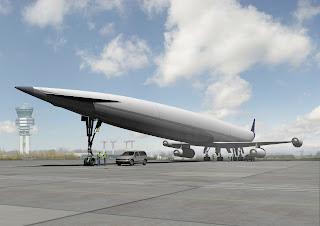
A company located in the UK, named Reaction Engines, are developing the next generation of engine design to be used for spaceflight and long distance air travel. Reaction Engines has begun development on a new engine that it plans to use in the next 10 years to power an unmanned spacecraft for delivering up to 12 tons of cargo into orbit. The company also plans to move this engine into the commercial flight business to power a Mach 5+ vehicle within the next 25 years.
The idea behind the engine starts with the use of hydrogen as a fuel. You may ask why hydrogen. Well hydrogen packs the most amount of energy per unit, then any other fuel. Hydrogen will be able to power these vehicles up to extremely high velocities.
The second idea being implemented here, which I think is way overdue for use, is the use of oxidizer. One of the limiting factors on many spacecraft is the fact that the vehicle has to carry it's own oxidizer with it, adding large amounts of weight to the vehicle. The idea here is to use the atmosphere as the oxidizer, use the air around the vehicle and carry limited amounts of oxidizer for use outside of the atmosphere.
The idea is sound, the implementation is a bit trickier. The killer of high speed engines is once the sound barrier is broken. The inlets of engines will create shock waves on their edges, and these shocks will disrupt flow and possibly choke the airflow into the engine. This will be the biggest hurdle in the development of the engine. Also the design that has been chosen for the engine, a circular inlet, is one of the hardest to predict shock creation on.
Break out the supercomputers, got some shock calculations to do.
Monday, February 11, 2008
Mach 5 Commercial Flights
Labels:
Engine,
Hypersonic,
Space
Subscribe to:
Post Comments (Atom)


2 comments:
Wow. So that would get me from Syracuse to Hawaii in, what, 3 hours? I wonder what they plan on doing about the g-forces...
Nice quick trips, they are saying England to Australia in 4 hours, normally a 22 hours flight.
As for g-forces, they shouldn't be a big deal, assuming the pilot doesn't throw it into a hard bank, in that case... Say Goodnight.
Post a Comment